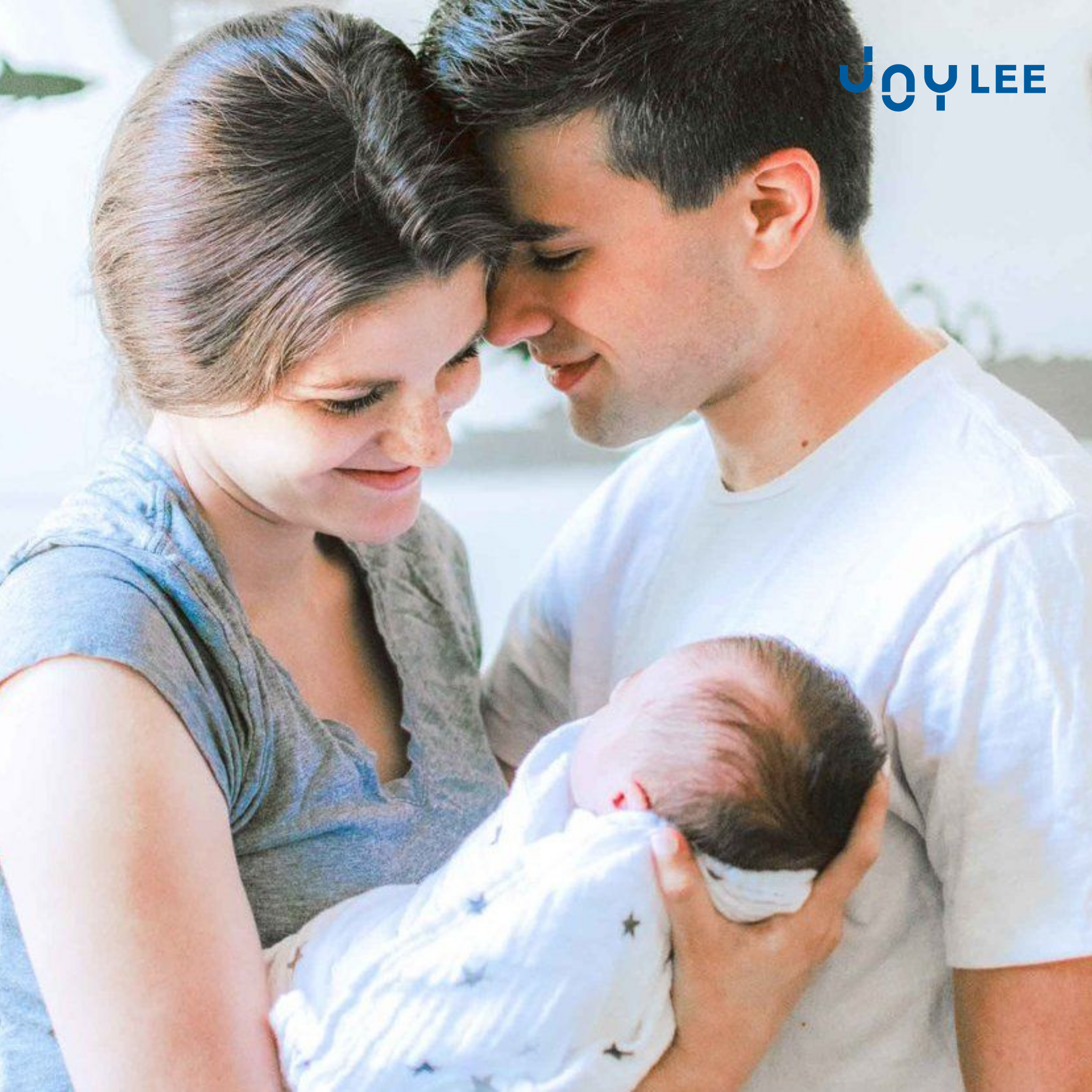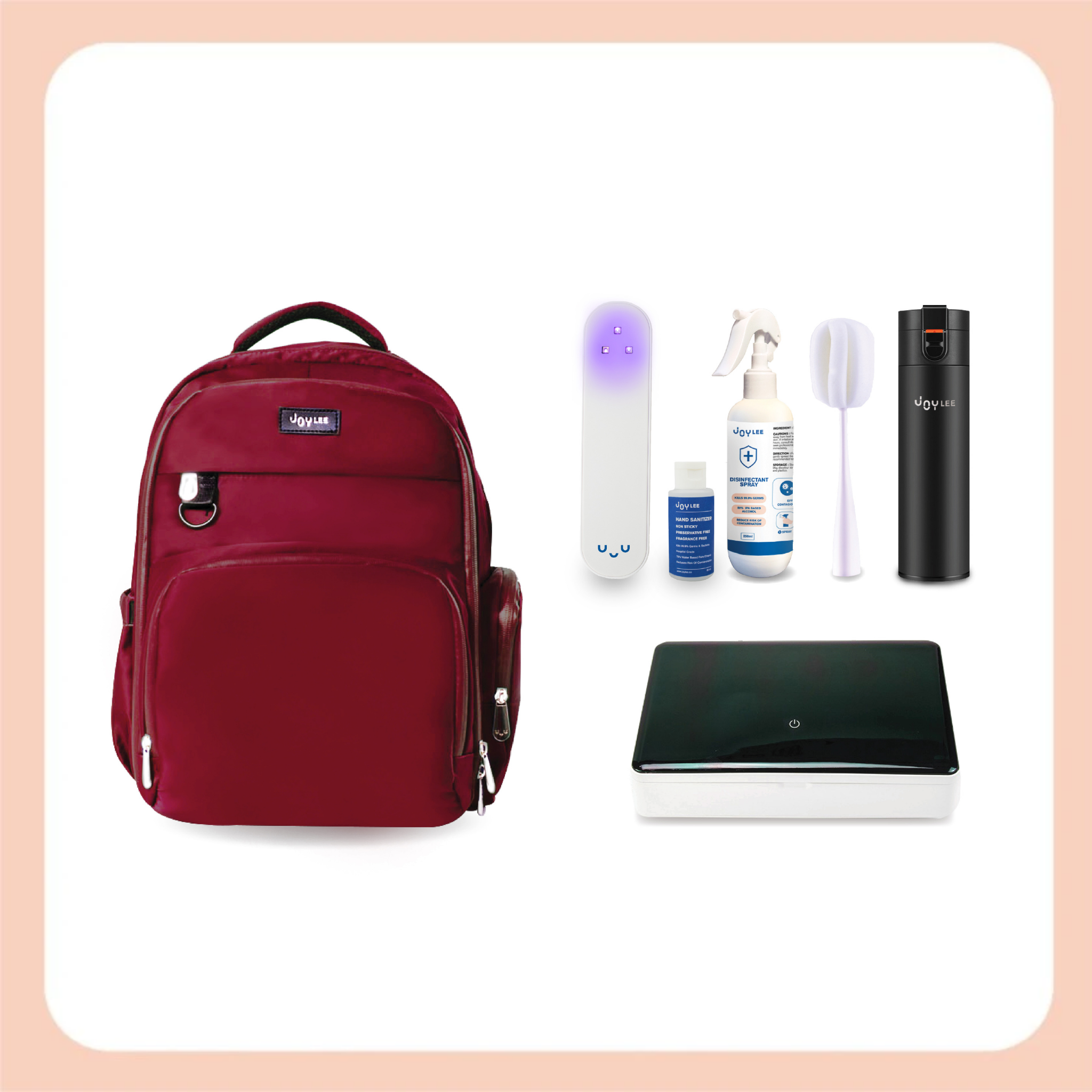
HOW TO HANDLE A NEWBORN BABY?
As parents have gone through the stage of pregnancy, labor and delivering, and now its the time to leave the hospital and take care of the wonderful angel on their own. Caring for a newborn is daunting yet an exciting experience. Many new parents do not know what to do as a newborn baby look fragile and weak. A new parents might be stress and fatigue on taking care a newborn. They need to learn to keep the stress under control as their baby need them.
Parents have to understand and learn the basics on how to handle a newborn or their behavior. Here are some tips on how to handle a newborn on behalf of their behavior.
How to handle a newborn baby?
1. Handling / holding a newborn
As a newborn is weak and fragile, it could be intimating to hold your baby.
Before you carry your baby, always wash or sanitize your hand (same goes to guests) to prevent germs or infections spread to the baby. Baby has low immune system which could be easily infected such as hand-foot-mouth disease.
To pick up your baby, slide one hand under the baby's head and place your other hand under the bottom. Scoop and bring the baby close to your body. It is important to support the head and neck because newborns do not have strong neck muscles. Be mindful of your back when you pick up your baby from the ground or anywhere such as stroller or bed. Bend your knees and not your waist.
To cradle a newborn, rest the baby's head on your chest, and slide your hand from the bottom to support the neck. Move the baby's head to the crook of your arm to support the neck. Once the baby is securely in the crook of your arm, place your other hand under the baby's bottom. Be mindful to continually support the baby's head and neck as you position the baby.
Remember that a newborn is not ready for rough play such as throwing in the air. They have fragile bones and body structures. Never shake your newborn as it would cause bleeding in their brain which could cause death.
2. Bathing you newborn
Bathing is an important process to keep your baby clean and hygienic from infectious germs or bacteria. However, in some situation, it is not suitable to bath your newborn. You can only start to sponge bath your newborn after the umbilical cord falls of and the navel heals completely in approximately 1-4 weeks. It is recommended to bath your baby 2-3 times a week in order not to dry out their skin.
It is recommended to start a tub bath when your baby is ready and not getting upset about it. Get ready a 2-3 inches of warm water and make sure that it is not too hot. By having a tub bath, you can massage your baby in the hot water and it would help on his/her blood circulations.
Here are a list of items that should be ready before bathing your newborn:
- a soft, clean washcloth
- mild, unscented baby soap and shampoo
- a soft brush to stimulate the baby's scalp
- towels or blankets
- a clean diaper
- clean clothes
Getting all these ready is important as you wouldn't want your baby to catch a cold. And NEVER LEAVE YOUR BABY ALONE in a bath.
3. Feeding your newborn
It is important to recognize the sign of hunger of a baby as they do not know how to speak. Other than crying, your baby might start stirring, stretching, or making sucking motions. If your baby slept overtime in the first few weeks, do not hesitate to wake them up and feed them. When the baby grew older, they can sleep longer and maybe over the night.
It is recommended to feed your newborn 8-12 times a day, which means approximately every 2-3 hours. The amount of food needed will varies to each baby. Investigate the sign to identify the amount of food they need such as weight gain, satisfaction, diapers needed each day. Only feed your newborn breast milk or formula as they do not need water or juice.
One of the most important steps in feeding is burping. Burping help your baby to reduce gas in their stomach to prevent vomiting. Hold the baby over your shoulder and gently pat or rub the back until you hear the baby burp. You can also place the baby in your lap, use your hand to support the chest, support the cheek bones with your thumb and finger. Lean the baby slightly forward and wait for the baby to burp. Parents can burp in the middle of feeding process and also after feeding.
4. Sleeping habit of a newborn
Newborn normally sleep as much as 16-18 hours a day and wake up every 2-3 hours to eat including the middle of the night. This is because their digestive system is too small that they need nourishment every few hours and should be awakened if they haven't been fed for 4 hours.
It is important to always sleep your babies on their back to avoid sudden infant death syndrome (SIDS). Stomach sleeping can block the baby's airway and cause the baby to get too hot and might cause SIDS.
The bottom sheet should fit tightly. Keep items such as pillows, blankets, and toys out of the crib or bassinet. Anything loose in the crib is a hazard and could suffocate your baby. Also be sure that there are no items that can get caught around the baby's neck such as ribbons, cords, or ties.
5. Get expectation and preparation
As mentioned previously, taking care a newborn might be a hectic and intimidating process. Parents should have their expectations to prevent mental breakdown. Expect lesser sleep on taking care a new born. Reschedule your time on taking care your baby. Also, expect a high volatility in your emotions as both parents might get tired and anxious. Discussing about the facts or problems between each other can reduce the risk of conflict or postpartum depression.
Parents should relax their standards and focus more on their baby. Relax yourself from your standard and give yourself break when you have chance. Get out of the house or accept a helping hand to help you acquire a more simple life.
Other than expectations, preparation is important to avoid hassle too! Parents should prepare themselves before the baby was born. Other than knowledge of a newborn, baby's equipment is important too. It is important to prepare a safe and hygienic environment for our newborn as they will get infected easily.
Introducing:
JOYLEE®️ New Parents Starter Pack
JOYLEE®️ Urbano Traveler Diaper Bag
A multiple compartment bag that is very suitable to insert every baby equipment for an outing. As there are lots of item or equipment that need to be prepare for an outing, this bag can well-organize everything with its convenient design.
JOYLEE®️ Ultraviolet Sterilizer Box
The omnidirectional sterilizing process with aromatic fragrance.
We could sanitize item like phone or wallet to prevent viruses spreading to babies, even visitors.
JOYLEE®️ LED Ultraviolet Disinfection Rod V2
Disinfect and stay hygienic with just 100 seconds.
UV Sterilizer Rod is suitable to sterilize almost everything (such as baby's bottles) without damaging the material with harmful chemical as UVC light does not contain any chemical substance. Therefore, it is suitable to use on a newborn.
JOYLEE®️ Disinfectant Spray
75% pure ethanol that kills 99.99% of bacteria.
This disinfectant spray is a quick drying material that are suitable to clean every corner in the hospital room. Cleaning every corner of the hospital room will be a good way to prevent virus infecting your newborn.
JOYLEE®️ Hand Sanitizer
75% pure ethanol with hospital-grade sanitizer.
We should sanitize their hand with this hospital-grade sanitizer. It has a suitable volume for huge usage. Sanitation is important to prevent germs spreading throughout the interaction between your baby and others.













